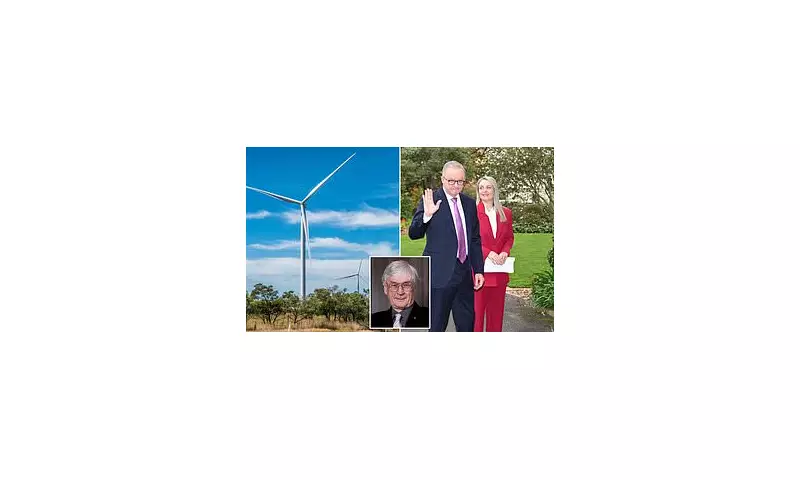
Australian business magnate and philanthropist Dick Smith has launched a scathing critique of the nation's renewable energy transition, delivering a grave economic warning that has sent shockwaves through political and business circles.
The iconic entrepreneur, renowned for his electronic retail chain, stated that Australia's aggressive push towards renewables under Prime Minister Anthony Albanese's government could precipitate "the biggest smash of wealth in history," potentially devastating family finances across the nation.
An Economic Catastrophe in the Making
Smith's warning centres on what he perceives as the unrealistic timeline and enormous financial burden of transitioning entirely to renewable energy sources. He argues that the massive infrastructure requirements—including extensive new transmission lines spanning thousands of kilometres—will inevitably lead to skyrocketing electricity costs for ordinary Australians.
"We're going to have the biggest smash of wealth in history," Smith declared, painting a bleak picture of families struggling to afford basic power necessities amidst soaring living expenses.
The Infrastructure Challenge
The businessman highlighted the practical challenges of the renewable rollout, particularly the need to construct approximately 28,000 kilometres of new transmission lines to connect remote solar and wind farms to urban centres. This monumental undertaking, he contends, will not only be phenomenally expensive but will also face significant logistical and environmental hurdles.
Smith questioned the feasibility of such an ambitious infrastructure project, noting the difficulties in securing land access and the tremendous costs involved—expenses that would ultimately be borne by consumers through their electricity bills.
A Call for Pragmatic Solutions
Rather than an immediate full-scale transition to renewables, Smith advocates for a more gradual approach that incorporates nuclear energy into Australia's power mix. He points to nations like Canada, which successfully utilise nuclear power while maintaining some of the world's lowest electricity costs.
His comments add weight to the growing debate around Australia's energy future, particularly as the opposition pushes for nuclear energy consideration—a position the current government has thus far rejected.
The Political Divide
The warning comes amid intense political debate over Australia's energy policy. The Coalition has been advocating for nuclear energy to be included in the nation's energy mix, arguing it provides reliable baseload power without emissions.
However, the Albanese government remains committed to its renewable energy targets, creating a clear ideological divide on how best to achieve Australia's emission reduction commitments while maintaining energy affordability and reliability.
As households already grapple with rising cost-of-living pressures, Smith's intervention adds a significant business voice to concerns about how energy transition costs might further strain Australian family budgets in the years ahead.





